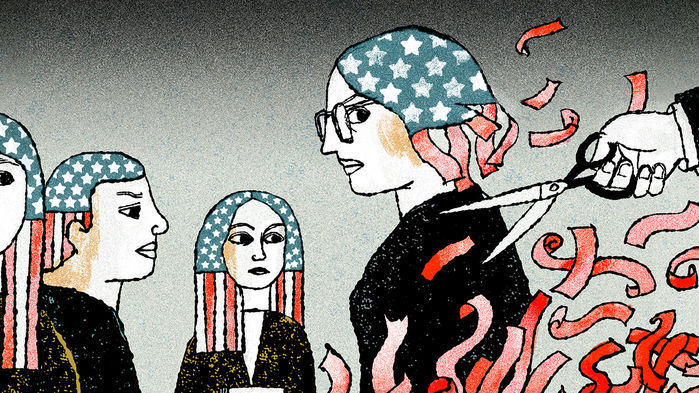By Evelyn Valdez-Ward
Science, November 9, 2017 —

Robert Neubecker
I stood in front of my research poster, anxiously waiting for the last judge to come around. Graduate school application season was looming. This was my last chance to impress the judges and find a Ph.D. program that would accept me. “Whenever you’re ready,” the judge said. This was it, my moment to shine. As I spoke, the judge appeared unimpressed, rummaging in her bag and seeming not to pay attention to me. After I presented, she said thank you and hurriedly walked away. I held back tears, certain I had lost my chance to continue my scientific training. As I began to take my poster down, she walked back and handed me a business card with three names written on the back. My heart leapt with hope, but I had one more thing to tell her: “I’m undocumented.”
I’m a scientist in the United States with Deferred Action for Childhood Arrivals (DACA) status, which protects me from deportation and allows me to work legally as long as I meet certain conditions—but I’m not a citizen. I constantly face rejection, but I’ve also seen the great opportunities that DACA provides. The Trump administration’s decision this fall to rescind DACA has brought new uncertainty for me and hundreds of other “Dreamers” who are building lives in science.
DACA has given us options. The summer after my freshman year in college, I thought I would have to decline a great research opportunity because the position was funded by the National Science Foundation, which—like all federal agencies—has restrictions on funding noncitizens. But, because DACA allows me to work legally, my undergraduate research adviser was able to make alternate funding arrangements, and we continued working together for 2 years. These research experiences, which were only possible because of DACA, led to my love for ecology.
The Trump administration’s decision this fall to rescind DACA has brought new uncertainty for me and hundreds of other ‘Dreamers’ who are building lives in science.
In my search for a graduate program, I faced plenty of disappointment. I was strongly encouraged to apply to several programs based on the quality of my research and my passion for communicating my findings at conferences. Yet, once I disclosed my undocumented status to prospective programs, our interests “no longer aligned.” It was emotionally draining to advocate for myself and be rejected, time and time again.
But that judge at the SACNAS (or Society for Advancement of Chicanos/Hispanics and Native Americans in Science) conference didn’t flinch when I told her about my status. Instead, she encouraged me to go ahead and contact the names on the card, which led me to my current Ph.D. adviser. To my surprise, when he learned I was undocumented, he immediately began searching for an avenue to fund me and make me part of his research team. I finally felt accepted into the scientific community.

Author Evelyn Valdez-Ward, holding the “Science has no borders” sign, with colleagues at a rally the day DACA was rescinded. Kathleen Treseder
Upon starting graduate school, I eagerly began planning my research projects—and trying to secure my own funding. I spent countless hours searching for grants and fellowships, eventually becoming numb to the words “Must be a U.S. citizen.” I worked diligently to perfect my applications for the few funding opportunities I was eligible for, and in the end I was awarded a Ford Foundation Predoctoral Fellowship. I started to believe that my status would not hinder my research or future career. I felt powerful for the first time in my life.
When DACA was rescinded in September, all that changed. Fear and uncertainty returned. I have been asking my adviser, other faculty members, and my funding sources what it means for me, but I always hear the same answer: “I don’t know.”
So, I’m doing what I can to secure my own future. The day DACA was rescinded, I led my department in a rally urging our congressperson to push for legislation that would provide a permanent solution for undocumented people. I hope that others in the scientific community will join me in advocating for Dreamers. We have an abundance of knowledge to offer, and science is strengthened when its ranks include diverse practitioners. DACA is a science issue.










